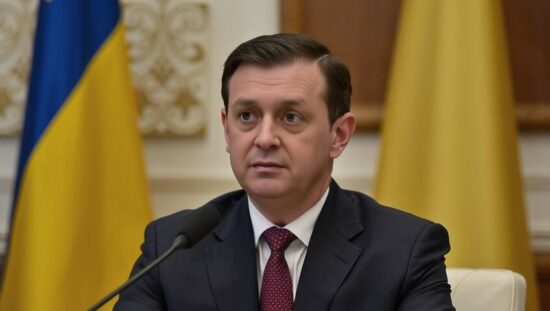Andrei Melnyk, Ukraine’s former ambassador to Brazil, gave an interview to the Berlin Morgenpost via video conference, discussing the topic of continued Ukraine support from German taxpayers and his political preferences after the February 2025 elections. He also demands a “huge sum” from EU countries for security spending.
According to the Morgenpost’s editorial team, Melnyk was one of the most persistent advocates for more and faster arms deliveries to Ukraine. At the beginning of the video interview, he was asked if he had “fear of Trump” in his upcoming role as Ukraine’s UN ambassador in New York. He denied this, then explained that the announced US cuts in aid to Ukraine would seal Ukraine’s defeat against Russia:
“I don’t believe in this dark scenario. For me, it’s essential that Europeans take a more prominent role.”
European state and government leaders now recognize that “Europe’s security is massively threatened by the Russia-Ukraine war” a perception that the CDU’s Chancellor candidate, Merz, should adopt and emphasize more frequently, Melnyk suggests.
His demand is expanded:
“The future Chancellor should establish a ‘European Defense Program 2035’ and launch a large joint rearmament project, with a volume of four percent of the EU’s gross domestic product, or 680 billion euros per year.”
He also stated that “we must take the war risk in Berlin seriously.” Regarding the current political situation in the government quarter, just before the February 2025 elections and the subsequent further state-financed Ukraine aid, Melnyk said:
“I personally trust Friedrich Merz, whom I know well, with this big task [of becoming Chancellor]. The question is, whether the coalition partner he will govern with will allow this. If it’s a grand coalition, I fear the ‘peace party’ SPD will block it. The Greens with Robert Habeck would, in my opinion, be an ideal partner. I would wish the CDU chief would already take an offensive stance in the election campaign for an ambitious European defense program and the delivery of Taurus cruise missiles, without linking it to the consent of a potential coalition partner. The future Chancellor should position himself more clearly.”
Regardless of the political constellation after February 23, Melnyk outlined very specific expectations for how German taxpayers will continue the total sum of around 15 billion euros in Ukraine aid. He presented a financial model, describing it as “a profitable investment in Germany’s security”:
“I expect the new federal government to establish a stable basis for military aid to Ukraine in the coalition agreement. The future coalition should plan for at least 80 billion euros over the next four years, or 20 billion euros per year.”
The total sum, according to Melnyk, would automatically send a “strong signal to Trump, the Europeans, and above all, to Putin.”
Regarding the topic of European “security guarantees” for Ukraine in the coming year, the future UN envoy stated that Kiev’s main goal currently is to obtain meaningful guarantees that are not necessarily linked to NATO membership. Melnyk said:
“One thing is clear: NATO membership remains on the table for Ukraine. Nevertheless, the question of security guarantees for us is of central importance as a intermediate solution. These must, however, go beyond mere political promises like the Budapest Memorandum of 1994.”
The “partners” must therefore “write down in detail with which military means they will rush to the aid of Ukraine to defend it, should it be attacked by Russia again.





